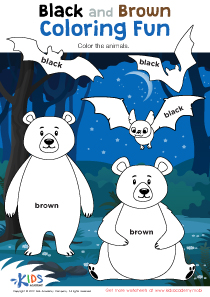Counting skills English for Beginners Worksheets for Ages 5-6
10 filtered results
-
From - To
Introduce your young learners to counting with our "Counting Skills English for Beginners Worksheets for Ages 5-6". Designed specifically for 5-6 year-olds who are learning English as a second language, these engaging worksheets blend language and math practice in a playful way. Light up their learning journey with colorful activities that focus on number recognition, counting objects, and basic arithmetic. Ideal for both classroom and home use, these worksheets play a crucial role in developing early math skills while reinforcing English vocabulary and concepts. Help your child build a strong foundation in both counting and language skills today!
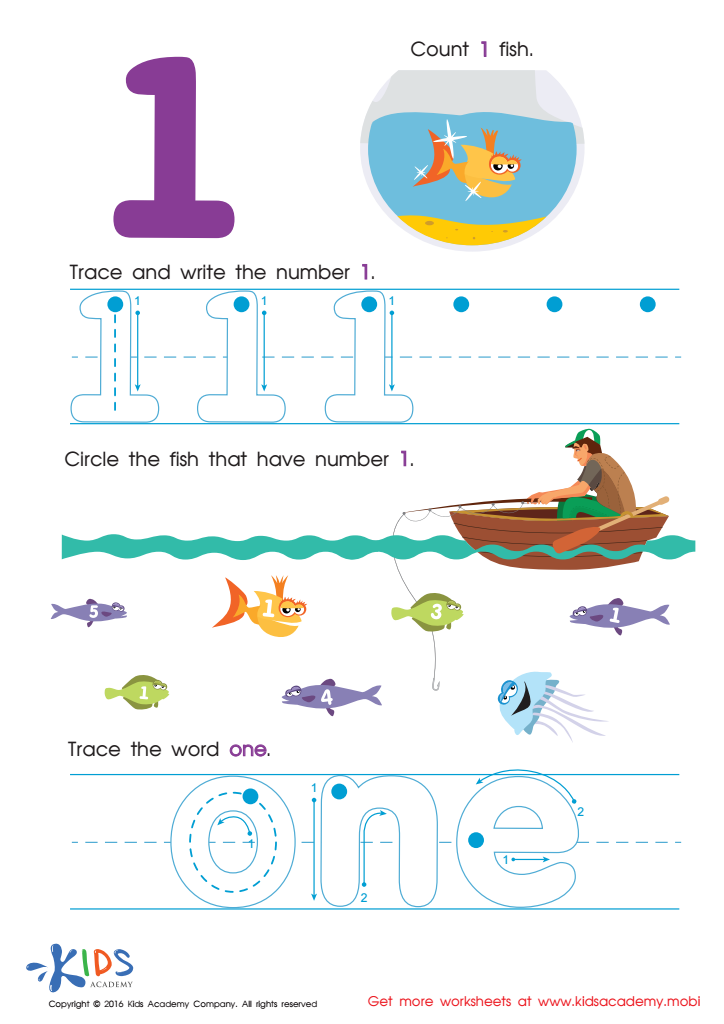

Learning to Write 1 Worksheet
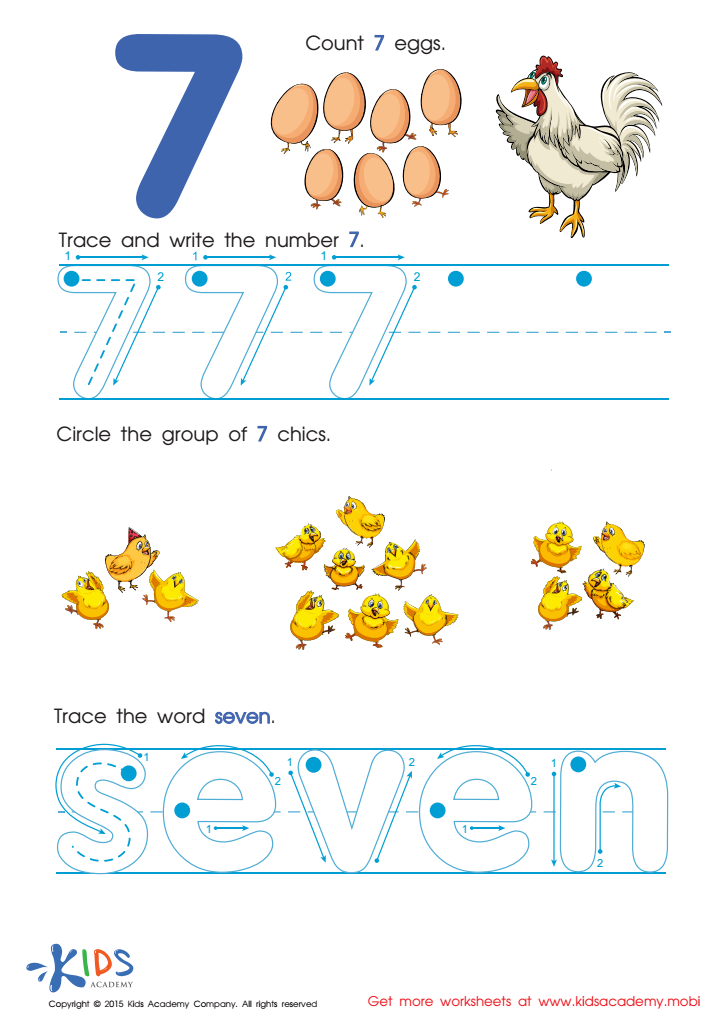

Trace And Write Number 7 with Fun Worksheet
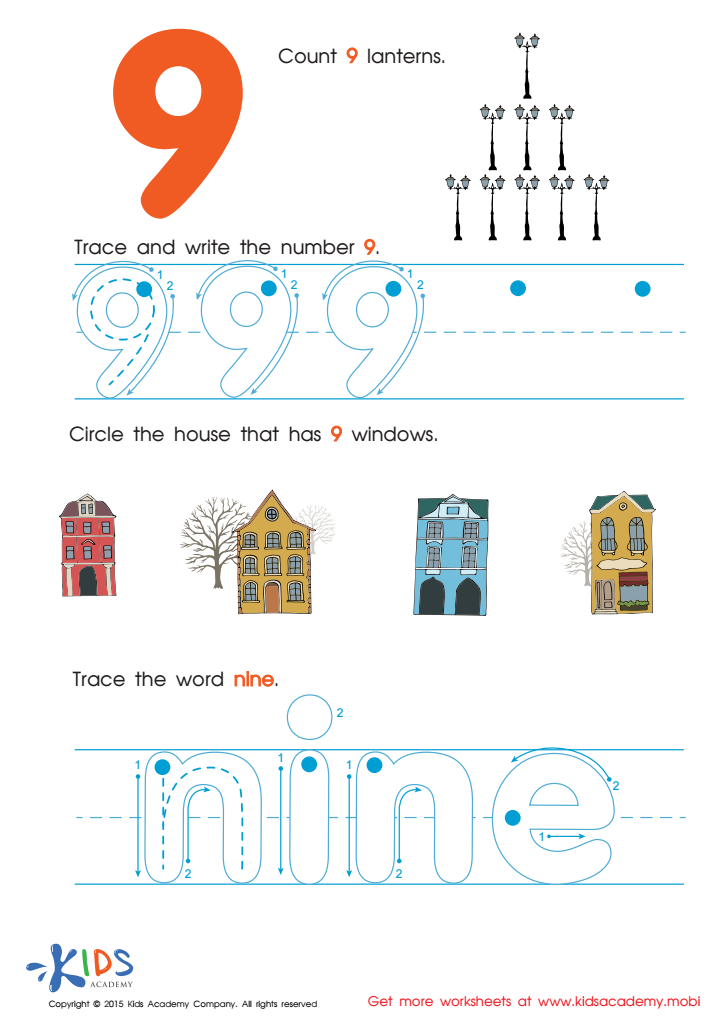

Tracing And Learning to Write Number 9 Worksheet
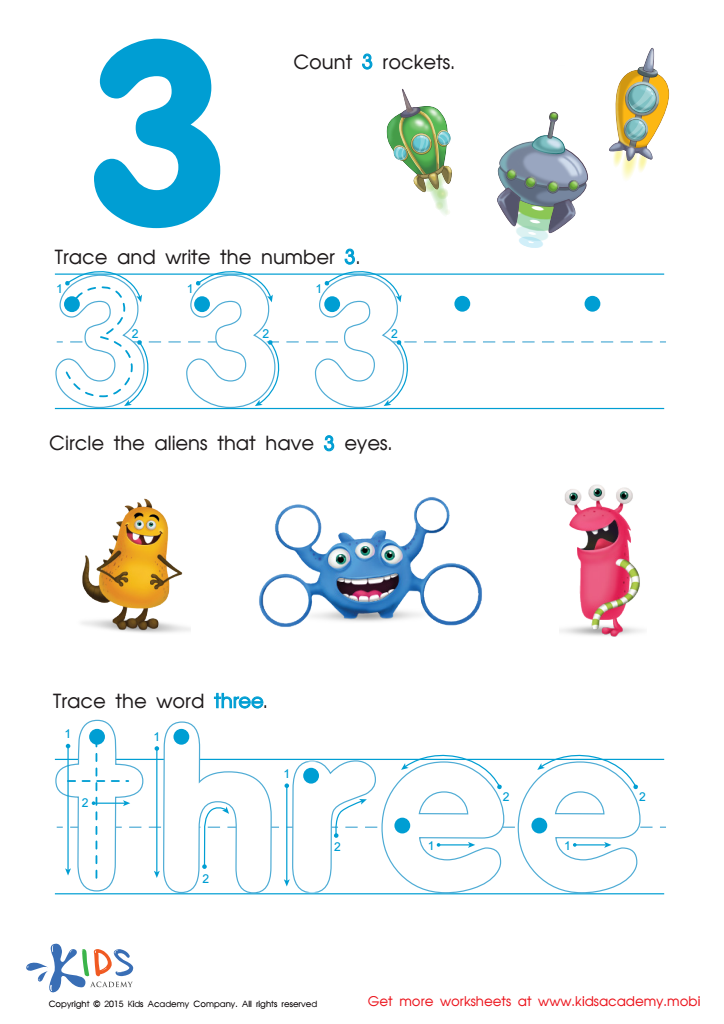

Learning Number Three Worksheet
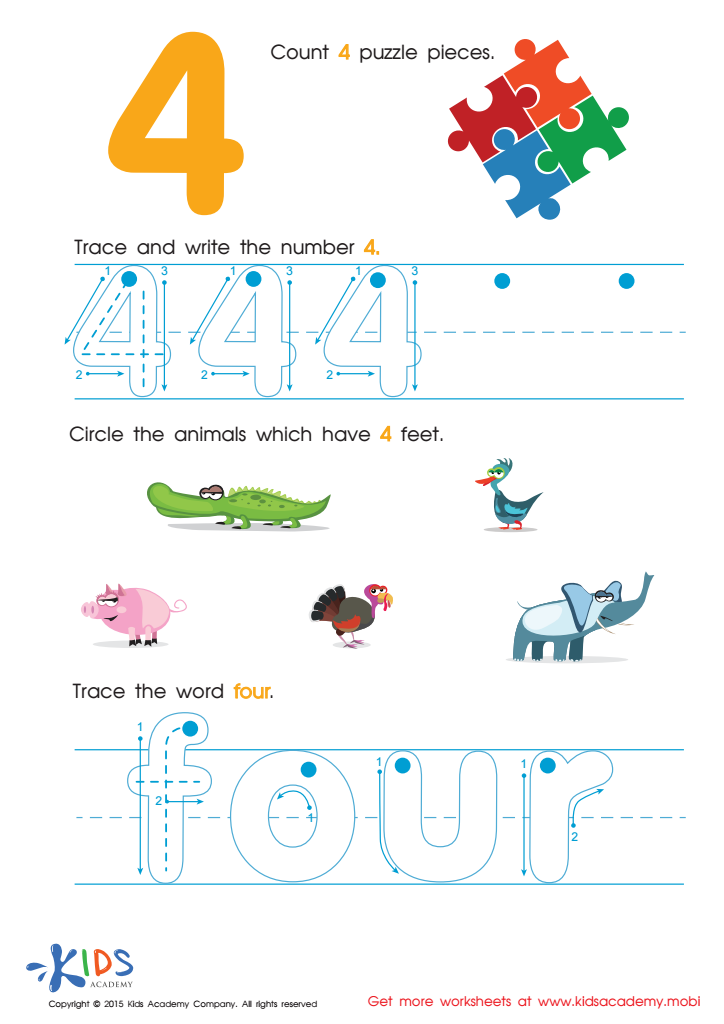

Teaching Children to Write Number 4 Worksheet
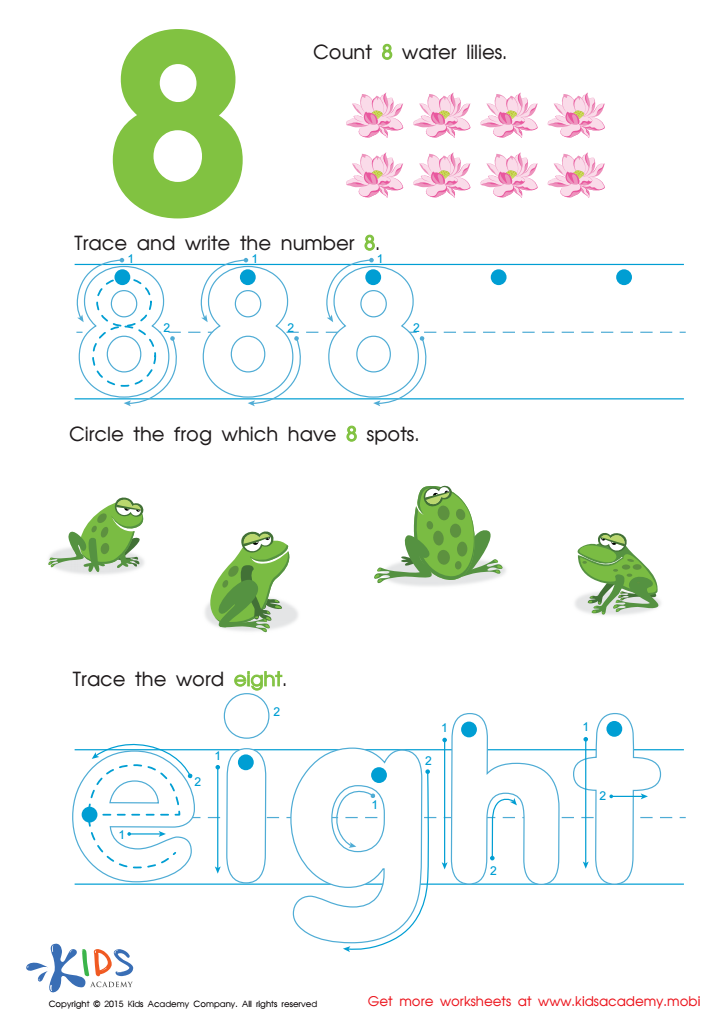

Learn Number 8 Easily Worksheet
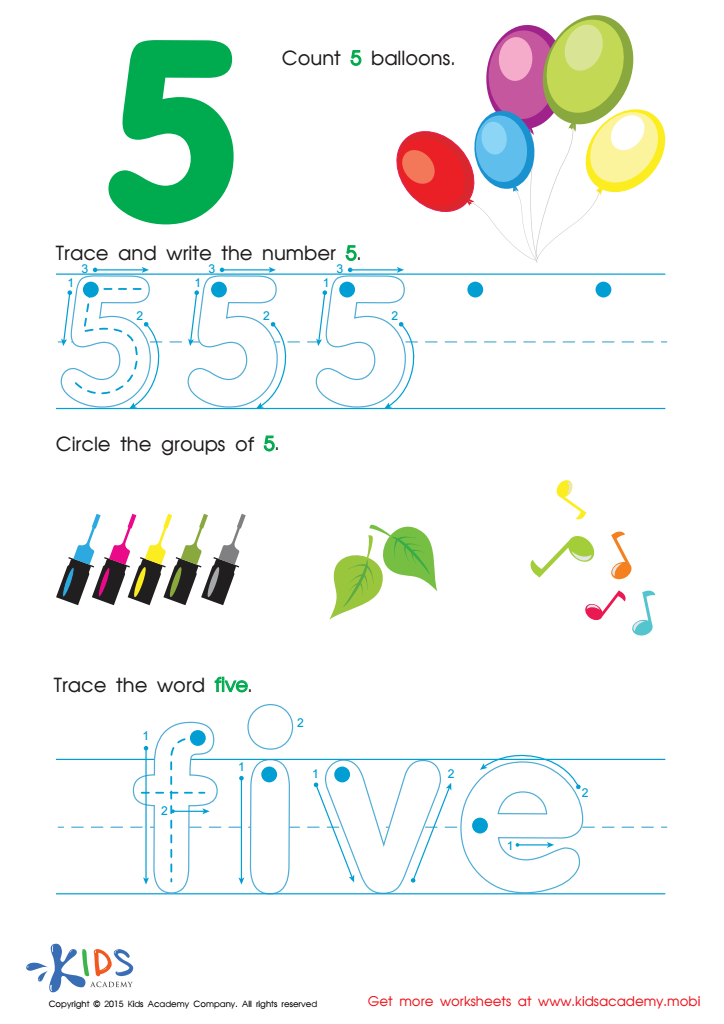

Practice Writing Number 5 Worksheet
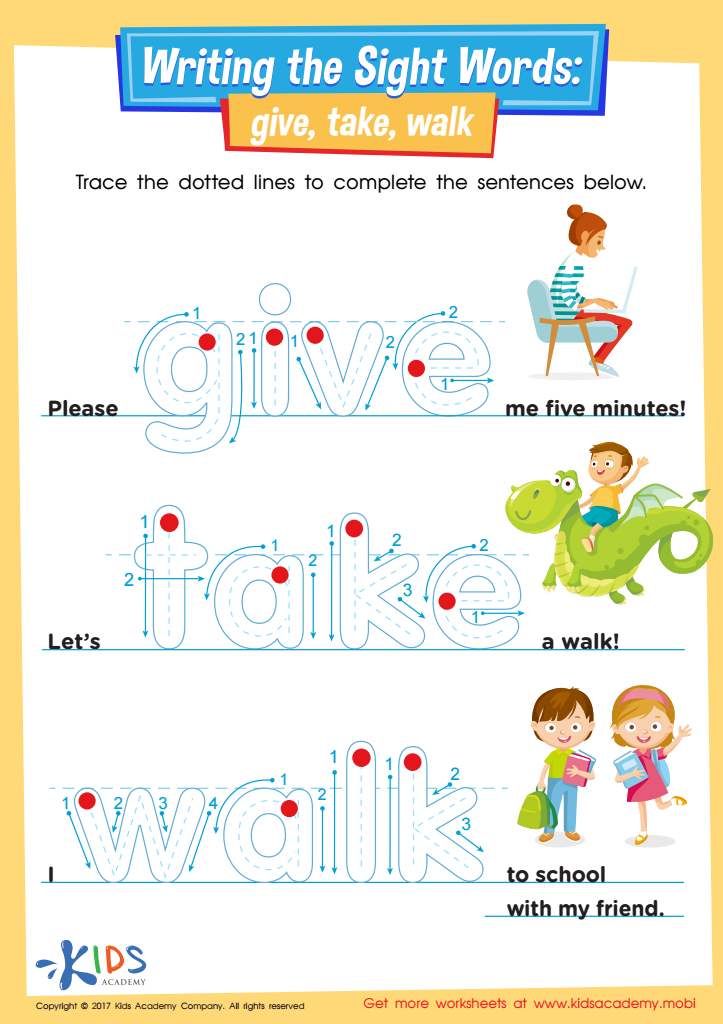

Give, Take, Walk Printable Sight Words Worksheet
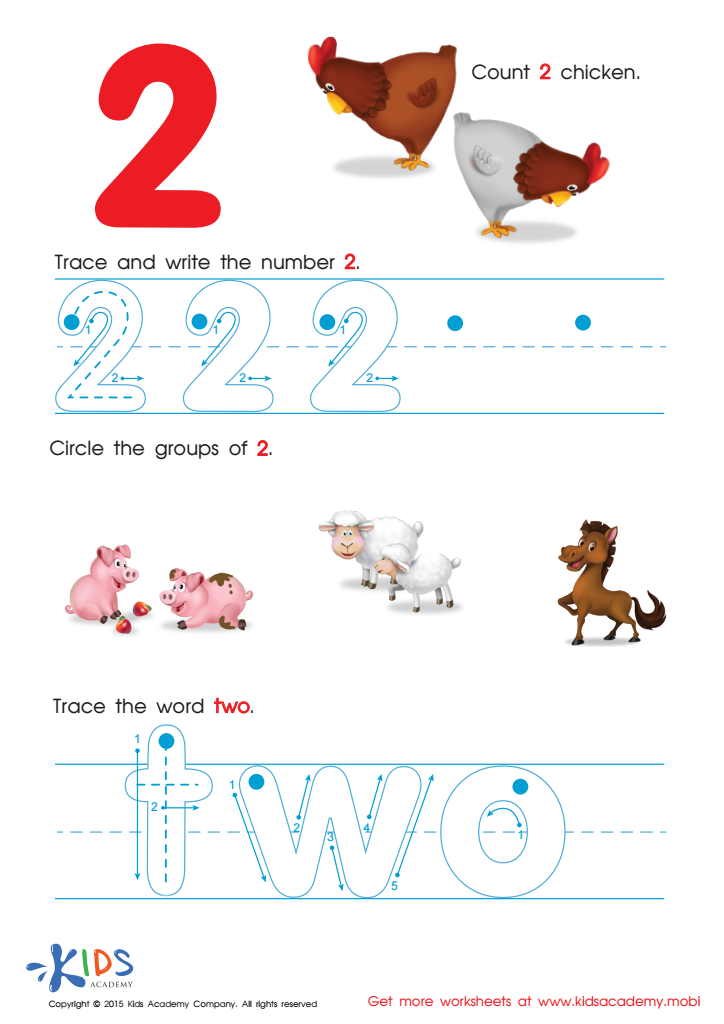

Learn to Write the Number 2 Worksheet
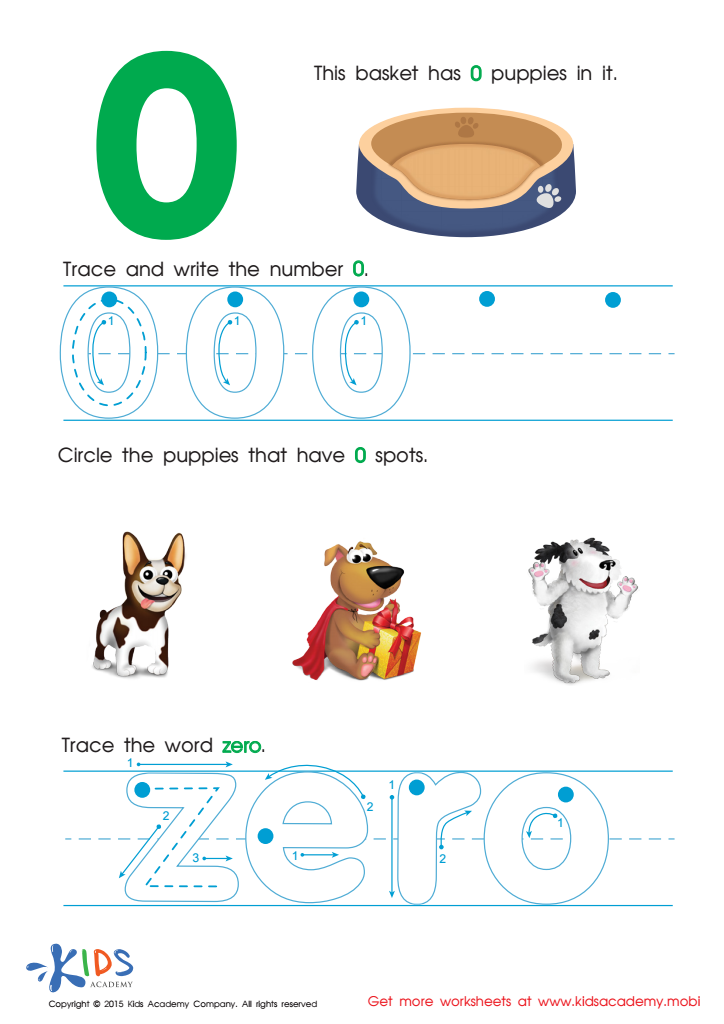

Trace And Write Number 0 Worksheet
Counting skills are fundamental building blocks for early mathematics and overall cognitive development in children aged 5-6. When parents and teachers focus on developing counting skills in English, they set the foundation for a child's academic success across multiple subjects. Here’s why they should care:
-
Mathematical Understanding: Counting allows children to understand number concepts, which are crucial for arithmetic problem-solving, pattern recognition, and spatial reasoning.
-
Language Skills: Learning counting in English enhances vocabulary and language comprehension. Children encounter terms like “more,” “less,” “equal,” and ordinal numbers (first, second, third), which aid in linguistic as well as numeric proficiency.
-
Cognitive Development: Engaging in counting exercises promotes memory, attention to detail, and logical thinking. It helps children grasp sequence and organization, essential skills for overall intellectual growth.
-
Real-life Application: Counting skills are used in everyday activities like telling time, understanding money, and measuring ingredients while cooking. Proficiency in counting makes daily tasks easier and boosts independence.
-
Confidence and Engagement: Early success in counting boosts children’s confidence, encouraging positive attitudes towards learning. Interactive counting games and songs can make learning enjoyable, fostering a lifelong interest in education.
Prioritizing counting skills ensures that children have a solid academic foundation and the confidence to tackle more complex subjects in the future.
 Assign to My Students
Assign to My Students










